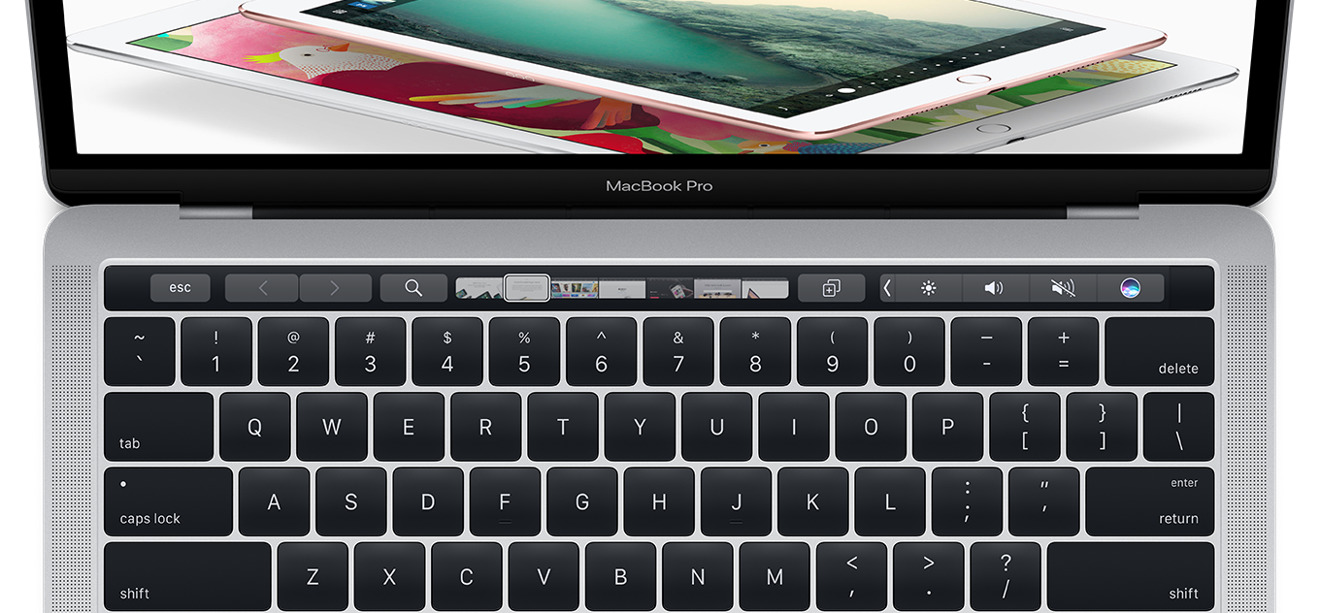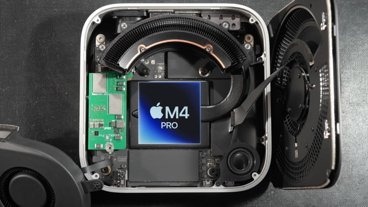Because of problems experienced by an initial supplier, Taiwan's Wistron is now handling at least some orders for the Touch Bar keyboard on the MacBook Pro, reports claimed on Tuesday.
Since the keyboard is difficult to build, its original supplier — an unspecified company in Singapore — was having trouble meeting Apple demand, according to the Chinese-language Economic Daily News, quoted by DigiTimes. It's not clear what percentage of orders Wistron might be taking.
In any case the first supplier's problems are allegedly partly to blame for delays in Pro shipments. When Apple announced its new models on Oct. 27, Touch Bar configurations were immediately saddled with a 2- to 3-week wait, which quickly stretched out to between 4 and 5 weeks.
The Touch Bar is a unique and complex piece of Apple hardware — a multitouch display strip meant to replace function keys. The component has its own processor, the T1, and can present context-sensitive controls such as sliders and timelines. It even has Touch ID built in, supporting Apple Pay and fast logins.
Low yields of hinges and batteries may also be contributing to delays. Regardless, Apple has supposedly been "aggressive" about ramping up MacBook Pro orders, expecting high sales running into 2017.
 Roger Fingas
Roger Fingas








 William Gallagher
William Gallagher
 Malcolm Owen
Malcolm Owen

 Brian Patterson
Brian Patterson
 Charles Martin
Charles Martin











15 Comments
I've no idea if this is the issue, just surmising, but the poor yield/quality issues could well be due to Apple's aggressive pricing demands from their suppliers. Perhaps paying a bit more might get them more reliable sources. The lowest price is so often not the best one to choose in my experience.
So the inards of the new MacBook Pro's are being built using cheap components?
Nothing new here. Most new Apple products debut with availability issues because of low yields of one or two key components (like a display or custom silicon). Bringing on a second supplier can be prudent to improve availability, and also to drive cost competition between suppliers.
All of these suppliers ramp up their production over time by improving processes, yield, etc. A lot of components are stockpiled during the production ramp before the product launch, and likely those stocks were depleted. In all cases, the bottlenecks alleviate after a few months.
It's a likely explanation why Apple staggers the worldwide release dates for many of its products.